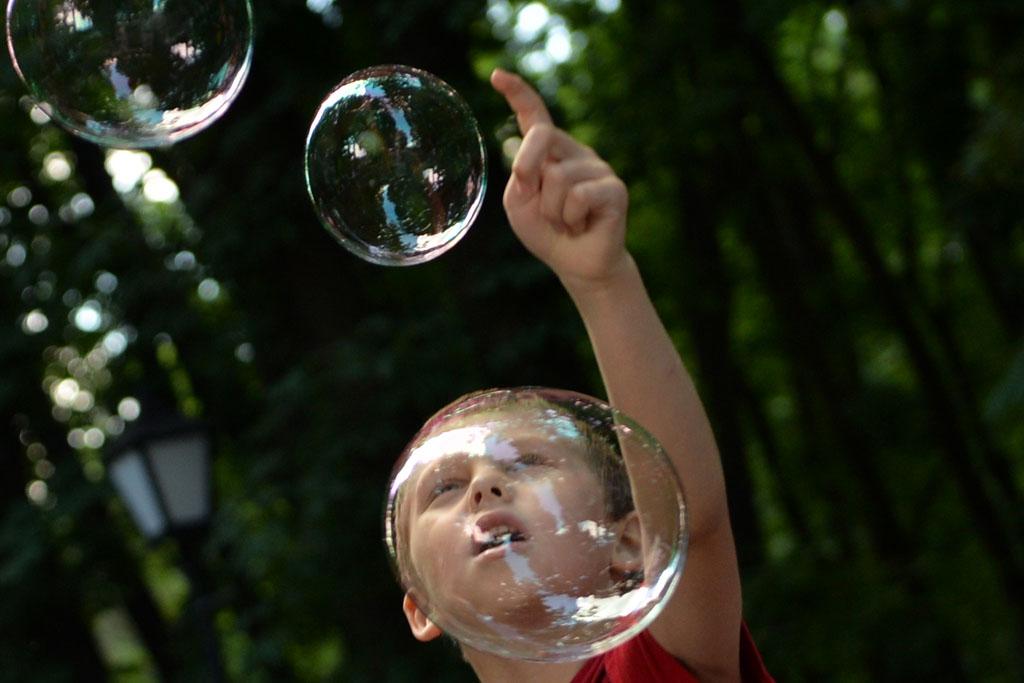Air pollution, autism further linked by new study
A boy plays with soap bubbles during a charity event organized by a motorcycle club for children with autism in Kiev, Ukraine, on May 28, 2013.
Air pollution’s link to autism was reinforced in new research released this week by University of Chicago, who analyzed 100 million American medical records on a county-by-county basis.
The researchers pinned their finding on boys with genital abnormalities, which can be caused by pollutants in the womb.
In turn, boys with autism are six times more likely to have those abnormalities.
“Autism appears to be strongly correlated with the rate of congenital malformations of the genitals in males across the country,” study author Andrey Rzhetsky said. “This gives an indicator of environmental load and the effect is surprisingly strong.”
The abnormalities – such as undescended testicles or a micropenis – are indications of possible congenital exposure to harmful environmental factors such as pesticides.
Autism rates jumped by 283 percent for every one-percent increase in frequency of malformations in a county, the study discovered.
Intellectual disability rates also increased 94 percent. Slight increases in autism and intellectual disability rates are also seen in wealthier and more urban counties.
More from GlobalPost: Autism and air pollution mean poorer countries at greater risk
The research appears in the March 13 issue of PLoS Computational Biology.
What hasn’t been discovered are any exact toxins that might be causing autism.
Leading experts believe autism spectrum disorders can be caused by both genetic and environmental factors.
“This study was not designed to figure out what the [environmental] factors are,” Autism Speaks senior director Alycia Halladay told HealthDay.
Halladay, who was not involved in the Chicago research, said there is no “smoking gun” when it comes to toxins, but “scientific agreement that it’s a mix of genes and environment.”
The next step, Rzhetsky and his team said, is including data from the Environmental Protection Agency.
“We interpret the results of this study as a strong environmental signal,” Rzhetsky said. “For future genetic studies we may have to take into account where data were collected, because it’s possible that you can get two identical kids in two different counties and one would have autism and the other would not.”
More from GlobalPost: Signs of autism can be detected in babies, new study says
The story you just read is accessible and free to all because thousands of listeners and readers contribute to our nonprofit newsroom. We go deep to bring you the human-centered international reporting that you know you can trust. To do this work and to do it well, we rely on the support of our listeners. If you appreciated our coverage this year, if there was a story that made you pause or a song that moved you, would you consider making a gift to sustain our work through 2024 and beyond?
